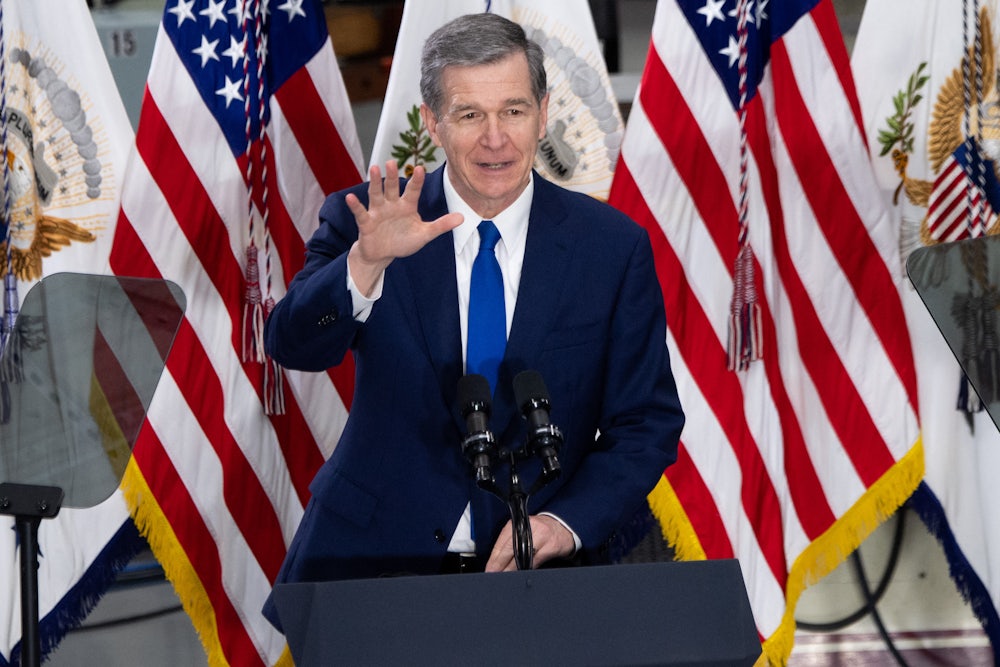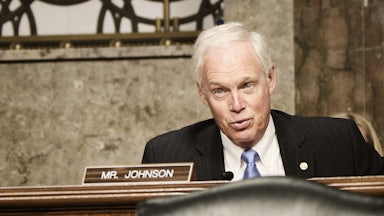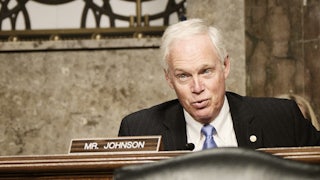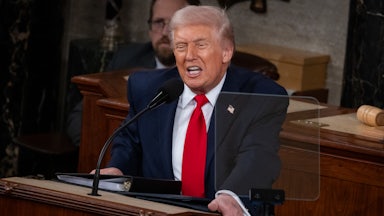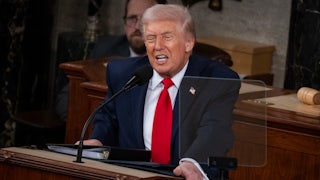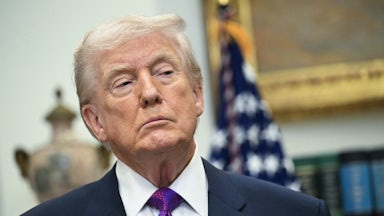When Americans talk about the separation of powers, they almost exclusively refer to the federal level. Grade-school students are taught about the checks and balances between Congress, the president, and the Supreme Court and how the Constitution’s authors designed it that way. At higher levels, legal scholars devote considerable attention to how these branches can and should interact with each other. Basic disagreements over each branch’s strength and importance define American political debates in ways that can be obvious and easily overlooked.
When looking to the 50 states, however, the proper balance of power receives far less attention. Each state in the union has charted its own unique constitutional path over the decades and centuries, and no two state’s systems are identical. Some states drifted toward enshrining more power with their governors. Others favored a strong but fractured executive branch. Still others embraced an active and ambitious state legislature. Many are hard to categorize in simple terms. Since state constitutions are easier to amend, these structures are far more fluid than their federal counterparts. These factors make some recent state-level restructuring proposals by Republican state lawmakers all the more troubling.
In Pennsylvania, where Biden defeated Trump last fall by just over 1 percent of the vote, Republican state lawmakers are seeking constitutional amendments to overhaul the state’s election laws in their favor. House Bill 1596 would, among other things, allow voters to enact an amendment that would impose a voter ID requirement favored by Republicans but opposed by Democrats and civil rights groups. The proposal comes after GOP lawmakers’ efforts to enact a voter ID law earlier this year were met with opposition from Pennsylvania Governor Tom Wolf, a Democrat. A state court had struck down a voter ID law in 2014, for excessively restricting the right to vote.
H.B. 1596 makes two other major changes to how elections are run in Pennsylvania. One of them would give the state’s auditor general the latitude to conduct wide-ranging audits of Pennsylvania’s election results before they are certified, “including audits of the administration of elections by the commonwealth or a political subdivision, the certification of election machines, the accuracy of the list of registered voters, and the administration of voter registration.” The current state auditor general is a Republican, and the proposal comes as Pennsylvania Republicans launch their own version of Arizona Republicans’ widely criticized “audit” of the 2020 election results in that state.
Finally, the bill would propose rewriting the state constitution to make the secretary of the commonwealth into an elected role instead of an appointed one. The position is analogous to the secretary of state post in most other state governments. Among its duties are supervising Pennsylvania’s election process. Kathy Boockvar, a Wolf appointee who held the post during the 2020 election, came under intense criticism from state and national Republicans for her interpretations of state election law that made it easier for Pennsylvanians to cast a ballot during the pandemic. Transforming the post into an elected one would make it easier for Pennsylvania Republicans to back a candidate of their own choosing in the future—and potentially game the results.
Taken together, the amendments appear to be designed to create permanent mechanisms in state government to reinforce the Big Lie—that Biden and Democrats won the 2020 election through fraud—and give Republicans more opportunities to undermine the results going forward under an auspice of legality. The Morning Call’s Paul Muschick noted earlier this week that Wolf can’t veto the amendment proposals like other legislation and that Pennsylvania voters almost always approve whatever the legislature sends them.
Wisconsin’s Republican-led state legislature is working toward similar goals from the opposite direction. State lawmakers recently proposed changes that would make three elected statewide offices—the state superintendent, the state treasurer, and the state secretary of state—into appointed ones. Its proponents argue that the change would make those positions more accountable and strengthen Wisconsin’s executive branch, which is currently led by Democratic Governor Tony Evers.
“It says, yeah, those positions are legitimate, but those positions should have more responsibility and should be under the governor and part of their cabinet … the buck stops with the governor,” Shae Sortwell, a Republican state senator who co-authored the proposal, told The Milwaukee Journal-Sentinel. “We’re not eliminating anything. We’re putting them under the governor so we can give them more responsibility and more accountability.”
If enacted, however, the proposal would ultimately transfer power over those offices away from Wisconsin’s electorate and toward the Republican-led state legislature. That distinction is less important in states where the statewide electorate can also exercise its will over state lawmakers. But Wisconsin’s state legislative map, building on geographic advantages, is so thoroughly gerrymandered that Republicans can secure roughly two-thirds of the seats even when Democrats win a majority of the statewide vote. That disparity effectively entrenches the GOP’s legislative majority into power regardless of the overall preference of Wisconsinites.
And while the proposal would strengthen Evers’s hand on paper by allowing him to appoint nominees for those positions, ultimate discretion would be held by the Wisconsin Senate, which can confirm or reject them. The Journal-Sentinel noted that Republican senators have wielded that process as leverage over Evers by blocking and rejecting his nominees. Future Republican governors, by comparison, would likely find the confirmation process to be far more frictionless for their nominees. Wisconsin is no stranger to these power plays: After Evers defeated Republican Scott Walker in 2018, Walker and GOP state lawmakers held an emergency session during the lame-duck period to strip the governor’s office of its discretion in key policy areas.
And even that move wasn’t without precedent. After the 2016 election, outgoing North Carolina Governor Pat McCrory and the Republican legislature worked to strip incoming Governor Roy Cooper, a Democrat, of some powers before he could take office. Two years later, North Carolina voters rejected a ballot measure backed by GOP lawmakers to further bolster their power, but the legislature remains largely undeterred. Just this week, Cooper vetoed a bill that would forbid state agencies and the attorney general—currently Josh Stein, a Democrat—from settling certain lawsuits without the state legislature’s consent.
The common thread that unites almost all of right-wing politics today—from Trump’s refusal to accept the 2020 election results to Republican senators’ cynical debt ceiling filibuster to GOP state lawmakers gaming the distribution of government powers for partisan advantage—is the persistent belief that Democrats are not legitimate participants in American governance, no matter how many voters support them or how often they do so. Even when their tactics rely on appeals to the electorate, the endgame is one where voters ultimately play a shrinking role in deciding how they should be governed. Those voters will have to decide whether “one person, one vote” becomes “one person, one vote, and once in a while it matters.” None of these changes are occurring outside the lawful policymaking process, but the end result could leave our democracy unrecognizable to those civics students of yesteryear.
